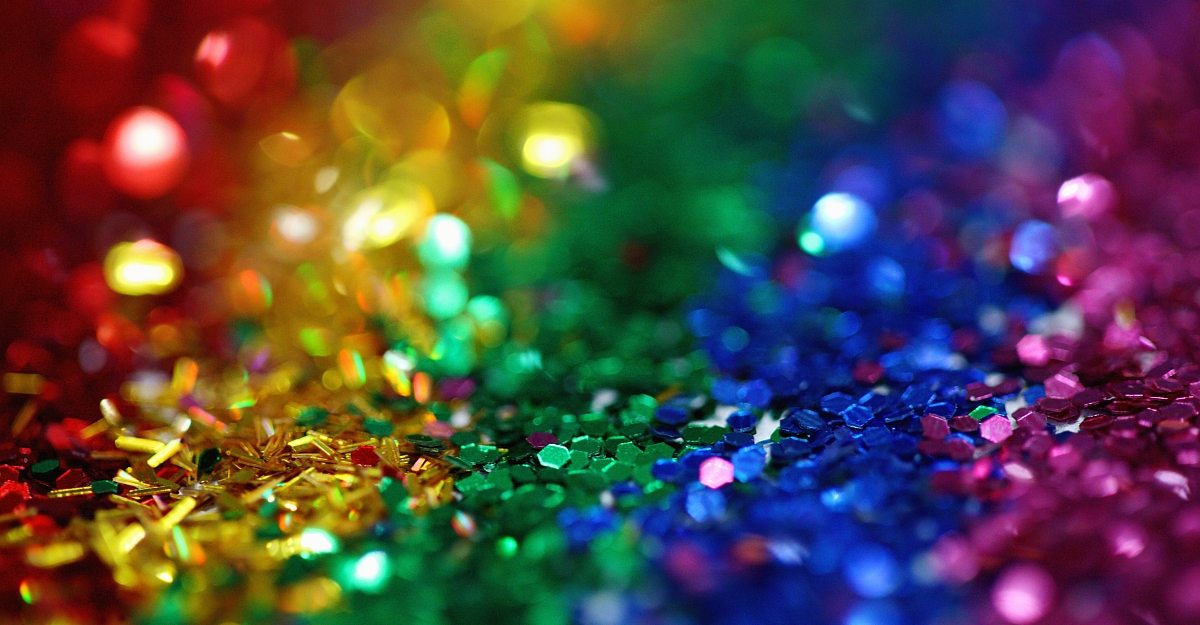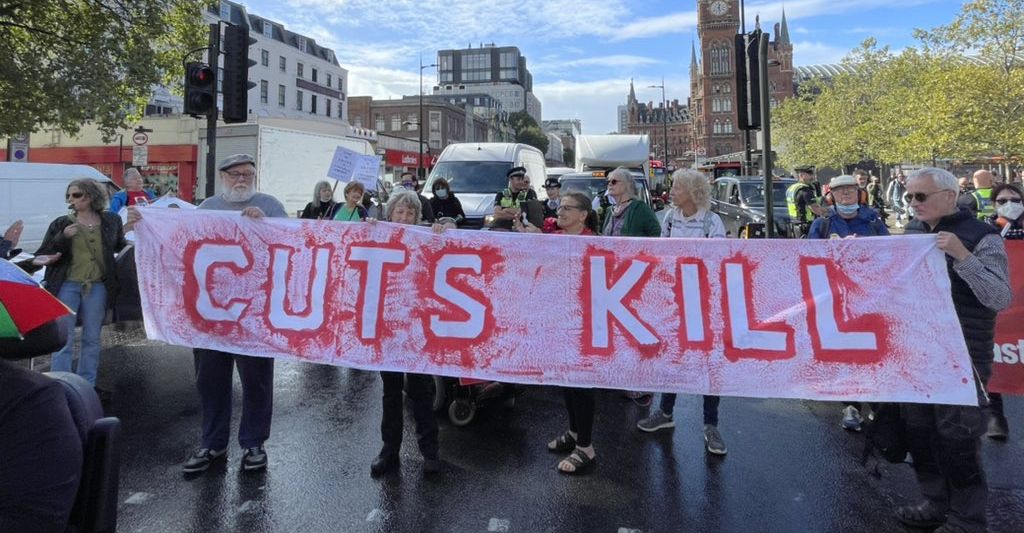For this year’s Autism Month, I’m craving more nuance in our conversations around autism. Since the calendar turned to April, I’ve seen several poppy, colourful infographics social media encouraging people to elevate autistic voices. Although perfectly well-intended, I worry that this advice will be hollow if we don’t also uplift the most vulnerable in our community—who may not have a typical ‘voice’ at all.
‘Nothing about us without us’ is a cherished maxim among disabled people—but what happens when the ‘us’ is so diffuse that we’re only ever representing a fraction of it? Although we may be united in a fight against ableism, what if our specific needs are so varied that our collective activism falls short?
There is a growing movement to celebrate neurodiversity. In many ways, its burgeoning traction has reaped greater awareness and acceptance of some autistic experiences. However, the popularisation and ‘memeification’ of neurodevelopmental disabilities hasn’t been felt equally by everyone.
In the past, the dominant narrative about autism was that of tragedy. Our disability has long been subjected to fear-mongering campaigns, bad-faith comparisons, eugenics, and all sorts of nasty rhetoric. Now, we’re seeing a new narrative emerge that privileges autistic success stories. Its protagonists are quirkily divergent, possess impressive talents, are considered ‘useful’ under capitalism, and reassure us that there’s nothing to fear from autism.
However, each of these narratives is built on cherry-picked experiences that flatten the autism spectrum. The reality is both, and neither, and something in the middle. The realities are many.
I understand how this predicament has come about—again, through good intentions. To combat toxic negativity around autism, we’ve over-corrected with toxic positivity. This has been brewing for some time, regurgitated in how autism is deemed ‘a superpower’ or ‘the next step of evolution’ in ways that smoothly gloss over its challenges.
When we speak about privilege relating to autism, this includes the usual factors such as race, gender, class or sexuality. But it also includes privileges specific to the disability—such as having low support needs, high cognitive and functional abilities, verbal speaking ability, good self-care and hygiene skills, and even being able to integrate into society and mask your autistic traits. After all, autism isn’t an invisible disability for everyone: some of us are easily identified by things such as our atypical speech, social awkwardness and visible stimming, which affects our experience of the world. Those who display a higher degree of ‘normalcy’—even if it’s conditional or comes at a high psychological toll—are often asked or selected to advocate on behalf of the whole community.
Autistic people with intellectual disabilities make up a significant portion of our community, but they’re rarely at the forefront of our collective activism.
Autistic people tend to be overrepresented in prisons and homeless populations, but again, this cohort is often neglected in favour of cutesy TikTok videos. There’s nothing wrong with prioritising autistic joy, but if you’re only engaging with autistic content that’s highly curated and designed for relatability, you’re not seeing us in full. Disability justice is linked to prison and police abolitionism, to racial justice, to poverty, to employment and opportunities, to all kinds of social equity issues. We need so much more than awareness, acceptance and appreciation alone.
We can create more solidarity within the autistic community by calling out our different needs, rather than ignoring them. Just as specific sub-groups deserve the option to forge their own safe spaces and self-determination—for autistic people of colour, autistic queer people, and so forth—we should take a similar view of autistic people with higher support needs, with severe and noticeable impairments, with a variety of co-occurring disabilities, who use augmentative and alternative communication (AAC), who’ve experienced ‘intervention’ therapies, who live in group homes, to name a few.
Perhaps controversially, I believe we should make space for the people who love us, too.
From the time autism was first identified, advocacy and research has come from those without the disability—and it’s been problematic, to say the least. Medical professionals, family members, researchers, support workers have historically commandeered the narratives around autism, judging us from the outside and weaponising their paternalism and ableism.
Recently, the field has shifted, with openly autistic researchers, parents, advocates and professionals emerging to speak from both evidence and experience. Hashtags like #ActuallyAutistic have seen the rise of autistic people asserting themselves, challenging stereotypes and condemning harm perpetrated by non-autistic people.
Over the past decade in particular, autistic self-advocacy has become the preference—and rightfully so. To compensate for the chronic silencing and underrepresenting of autistic people, however, it’s become increasingly accepted to cut caregivers and parents from the conversation altogether. Our lived experience is essential, but it’s naïve to reject our supporters; some of us cannot live without them. Again, there may be some over-correction at play here.
Autistic-led initiatives are great, but by excluding our allies completely, we exclude those who rely on them most heavily. We should all be supported to express ourselves and to make decisions, but we can’t neglect those in our community who don’t have this ability, despite all the best efforts and supports in place. By shutting out caregivers and family members completely, we shut out the autistic people who need them to claim a seat at the table.
Recently, there was controversy around Black Inc. Books’ Growing Up Neurodivergent in Australia submission call-out, due its limited and arguably exclusionary definition of neurodivergence.
However, I noticed that the Twitter threads relating to the controversy received much more traction than concurrent threads about the platform of Black Inc. Books and its Zionist ties, as activists called for a boycott of the publisher and all of its anthologies. A lot of fellow neurodivergent settlers were focusing on the politics of self-identification and preferred terminology around autism—an important discussion under different circumstances—but not on the top-down racism of the publisher. Some people focused solely on the issues relating to neurodivergence, but not on the exclusion of Palestinian writers from the entirety of Schwartz Media—including neurodivergent Palestinian writers. The violence of medical institutions was front and centre, ahead of the violence of colonisation in action. To me, this exemplified a lack of awareness or allyship for neurodivergent people with intersecting identities, and those whose exclusion is deeply entrenched in the institutions that many others take for granted.
I feel this is a pattern in the autistic community, a symptom of a broader issue. Activism, especially online, often starts and ends with prescriptivism around language, such as the implications of saying ‘autistic’ or ‘person with autism’, the validity of autism as an identity label, and the ethics of functioning labels. Don’t get me wrong, these semantic choices do feed into how autism is seen and stigmatised. But for many of us, they have little impact on our daily survival, especially under the prevailing societal structures.
Sometimes, this activism can even work against us. When people say things like, ‘autism is just a neurotype, not a disability/disorder’, it undermines those whose status as a disabled person, or whose clinical diagnosis, grants access to the supports we need to survive—even if we can acknowledge the issues in how we must navigate these systems.
Similarly, our community often fails to recognise that we are all experts in our own experiences of autism, but that doesn’t make us experts in anyone else’s, and we must otherwise continue listening, learning and uplifting.
For example, Black autistic activists Tiffany Hammond and TJ—who are also raising Black autistic children in the U.S.—have faced harsh criticisms from white autistics when offering nuance to conversations around therapies, and the complicated role they play in an oppressive, capitalistic landscape with no alternatives. Sometimes, the people voicing criticisms aren’t speaking from experience at all.
All autistic perspectives matter, but why are we so reluctant to acknowledge where our own lived experience ends? Why can’t we show up for other presentations and experiences of autism as allies, rather than centring a singular narrative to the exclusion of others?
If you balk at the suggestion to seemingly ‘divide’ the community in this way, just know that this already happens. People with lower support needs frequently distance themselves from the perceived unflattering aspects and connotations of the disability. You’ll hear it in rhetoric like:
‘I’m autistic, but I have friends.’
‘I’m autistic, but I’m really smart.’
‘I’m autistic, but I have high empathy.’
‘I’m autistic, but I’m not like that.’
By denying the differences and privileges exist within our community, we don’t create true unity, just a veneer of it. We may share commonalities, but we aren’t bound by some innate understanding of each other. And even if functioning labels themselves are problematic, I don’t believe the solution is to pretend we all experience the same level of disability on a day-to-day basis.
It’s become harder to openly talk about the real struggles of having autism. Pop culture representations have long been criticised, but I don’t feel any more represented by autistic people on social media, or in the limelight. I’m equally invisible in a story of autistic exceptionalism as I am in a story about autistic tragedy. Erasure is rife for us all, but this compounds the more you diverge from conventional accomplishments and abilities.
Of course, every autistic person struggles, even if they’re a celebrity or a content creator who prefers to focus on jokes, ‘stimmy’ videos, and autistic pride. No one owes us their vulnerable moments, or needs to curate their existence in any specific way. But please don’t leave the rest of us behind just because those autistic experiences are easier to digest, more relatable or more aesthetically pleasing as an object of public consumption.
My intention isn’t to dismiss anyone else’s experience, or to exacerbate feelings of not being ‘autistic enough’. It is simply to keep the most marginalised autistic people at the heart of our activism, and to focus on autistic needs, justice and allyship with our most vulnerable people—rather than hyping up autism as an identity label, hashtag or buzzword alone.
There’s room for joy, but only if there’s room for all of us—and our struggles and nuances—too.
Image: Alexander Grey






